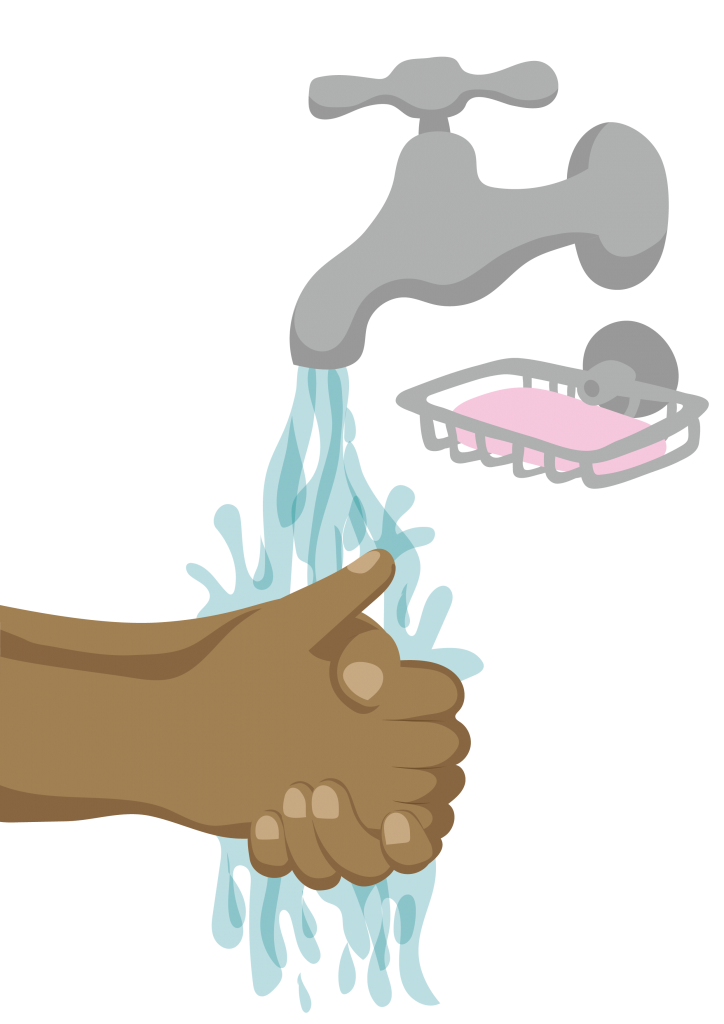
The aim of the eye health check is to make sure the person’s eye is healthy, and they do not have a health condition or eye problem that should be seen by a doctor of qualified health practitioner.
To do the eye health check, you will need to ask the person some simple questions, and also look closely at their eye.
In this topic we will look at some common eye health problems.
The eye problems included in this topic are on the TAP vision screen form.
Ask the person: can you see clearly in the distance?
To help the person answer you can give examples of things they would be likely to look at that are more than a few meters away.
If the answer is no, this person will need to be referred to an eye health professional for further assessment.
You can still complete the screen, and send the completed form with them.
Question
Possible examples: TV, street signs, faces across a room, leaves on a tree.
Possible examples: blackboard at school, friends across the room, leaves on a tree.
Ask the person: do you have diabetes?
Diabetes can cause damage to the eye, which in turn causes a vision problem.
Ideally any person with diabetes should:
- Have a management plan in place with their doctor or a diabetes service
- Have a regular vision assessment from an eye health professional
Discussion
Discuss with colleagues.
Where do people who have diabetes go for treatment in your area? This may be:
- Local health clinic
- Local hospital
- Diabetes specific clinic
What is the referral process?
Ask the person: do you have any of these problems?
- Red eyes with pain and discharge
- Severe eye pain
- Itchy, weepy (teary) or gritty/dry eyes
If a person has any of these problems, refer them to a doctor for review.
Question
If a person says that they have red eyes with pain and discharge, severe eye pain, itchy, weepy or gritty (dry) eyes, what should you do?
Hint: The vision screen form suggests what action you should take.
All of these are signs the eye is not healthy. If a person has any of these problems, refer them to a doctor for review.
Ask the person: have you had any of these problems recently?
- Sudden loss of vision
- Bad headaches that have lasted longer than a few days
These are signs of potentially serious problems with the person’s health or vision that should be attended to by a doctor. Refer straight away to a doctor for review.
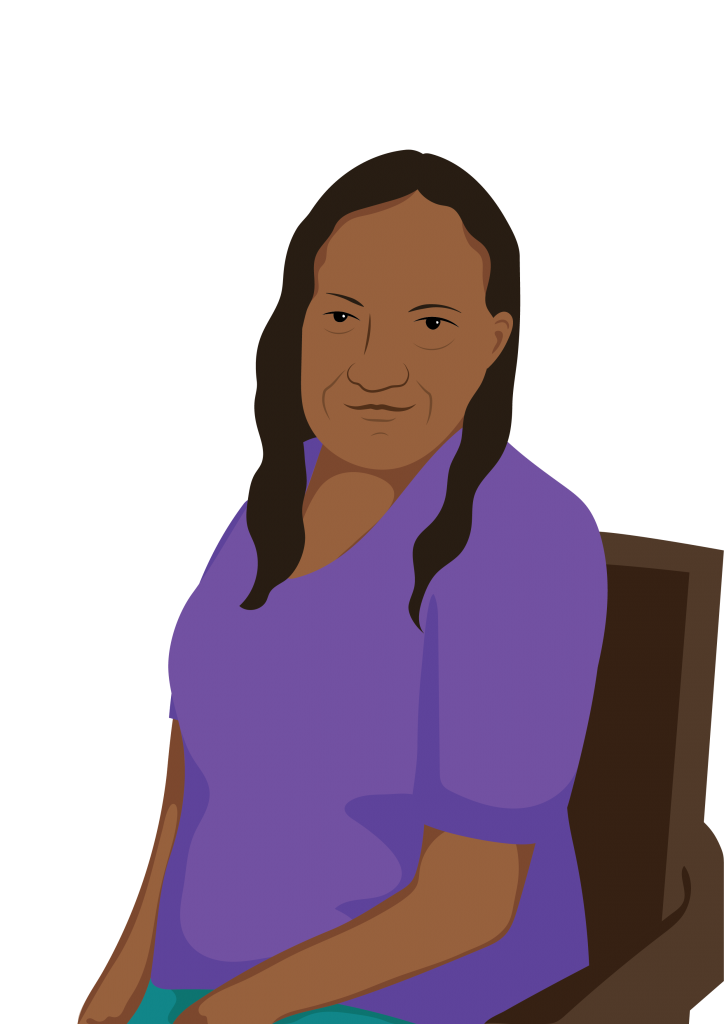
Meet Jaya
Jaya is 60 years old. She has diabetes and high blood pressure. She is an active lady, looking after her young grandchildren at home.
Jaya came to the health clinic because when she woke this morning she could not see out of her left eye.
Jaya has reading glasses but has not had any other problems with her eyes before.
Question
You should refer Jaya to a doctor immediately. She has had sudden loss of vision and this needs to be treated quickly.
What happened next?
Jaya came back to you see a week later. She thanked you for sending her to the doctor. The doctor said that there was a problem with the blood flow to her eyes and if she waited any longer she may have permanent vision loss. She has regained most of the sight in her eye and is being treated to prevent it from happening again.

Meet Daniel
Daniel is 52 years old. He works as an accountant and has used prescription glasses since he was 20. He attended a health clinic because he felt his vision had recently become blurry. During a vision screen he reported that it has been 2 years since he last had his eyes checked and lately he has been getting a lot of headaches.
Question
You should refer Daniel to a doctor or eye specialist. He has been having a lot of headaches and blurred vision. There may be an eye problem that needs to be treated by a specialist.
What happened next?
Daniel was diagnosed with a type of glaucoma. If it was not treated, he could have lost complete sight in his eye. He is now going to have more regular check ups to prevent his vision becoming worse.
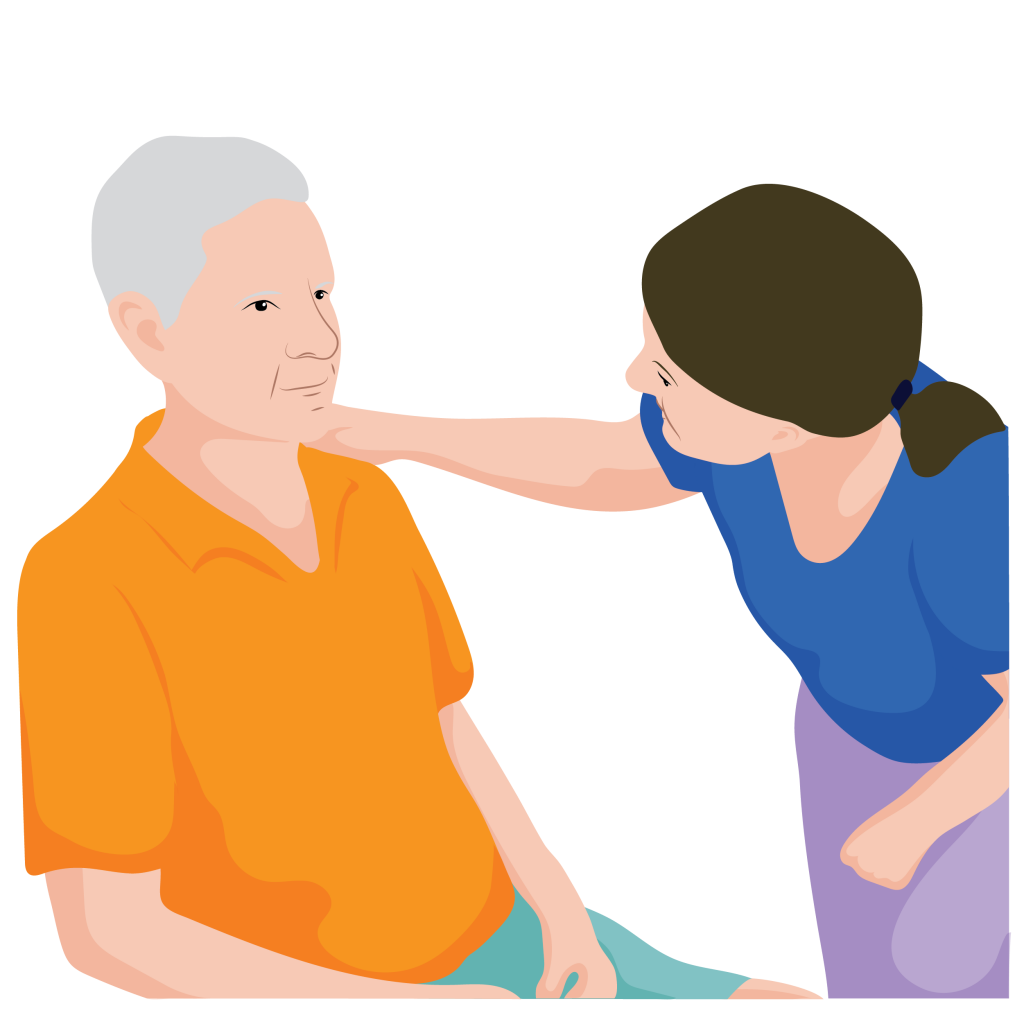
Observe: is the centre of the person’s eye white or cloudy?
If yes, this is a possible sign of a cataract, and the person should be referred to an eye health professional.
Cataracts reduce a person’s vision significantly. However, a cataract can be successfully treated, restoring vision.
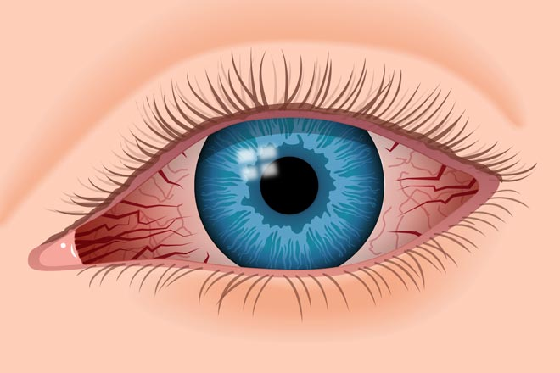
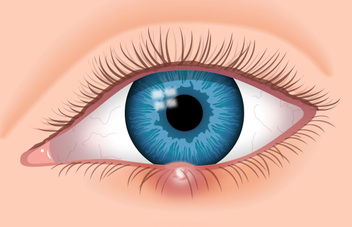
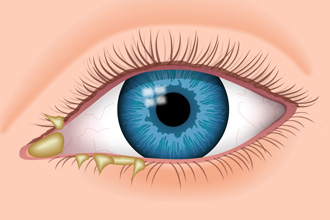
Observe: is there any sign of:
- Redness or swelling
- Growths
- Discharge from the eye or lids
If you observe any of these problems, refer the person to an eye health professional.